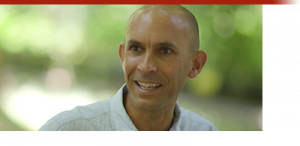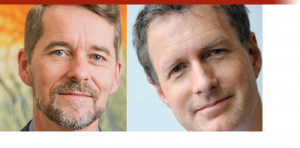Subscribe: Spotify | | More

Jim talks with Gregg Henriques in the third and final part of a series on his book A New Synthesis for Solving the Problem of Psychology: Addressing the Enlightenment Gap. They discuss the concept of justification, replacing “justice” with “justification,” behavioral investment theory, John Vervaeke’s recursive relevance realization, 6 principles of animal mindedness, making a living, animals as functional behavioral investors, evolution of mental behavior in 4 stages, the P − M => E learning control theory, emotion vs valence, framing an architecture of human mind, layers of working memory, 3 types of mind, what it is like to be, the 2-step model of consciousness, the Aristotelian soul, integrated information theory, global worskpace theory, the unknown mechanisms of neurocognitive causation, Unified Theory of Knowledge, the influence matrix, Vervaeke’s 4P/3R meta-theory, integrating independent meta-theories, Timothy Leary’s interpersonal circumplex, the origin of gender roles, the 5-part map of mind, what a person is, JII (justification, influence, influence) dynamics & the unconscious, 4 functional contexts of justification, bullshit as a problem of social epistemology, evolution of the culture-person plane, whether post-modernism is really an epoch, the entire structure in recap, and much more.
Listeners may be interested to know that Gregg is organizing a conference. Consistent with his book, it is called Consilience: Unifying Knowledge and Orienting Toward a Wisdom Commons. It will be held online March 17 and 18th. It is a Zoom event, and free to the public. Jim will be talking about Game B, and will be joined by Jordan Hall. John Vervaeke will give the keynote. And there will be over 40 presentations by many folks who have been featured on the Jim Rutt Show. Links below:
Dr. Gregg Henriques is Professor of Graduate Psychology at James Madison University in the Combined Doctoral Program in Clinical and School Psychology. He received his Ph.D. in Clinical Psychology from the University of Vermont and did his post-doctoral training at the University of Pennsylvania. He is a theoretical psychologist and has developed the “Unified Theory of Knowledge,” which is a consilient scientific humanistic worldview to unify psychology. He is the author of A New Unified Theory of Psychology (Springer, 2011), and A New Synthesis for Solving the Problem of Psychology: Addressing the Enlightenment Gap (Palgrave McMillian, November 2022). His scholarly work has been published in the field’s best journals, and he has developed a popular blog on Psychology Today, Theory of Knowledge, which has received over eight million views. He is a fellow of the American Psychological Association, the 2022 President of the Society for the Exploration of Psychotherapy Integration, and founded the Theory of Knowledge academic society.




